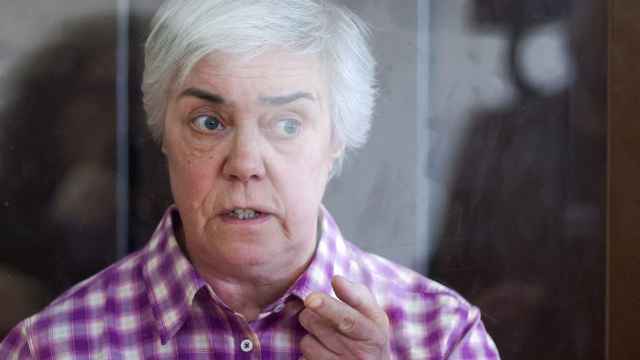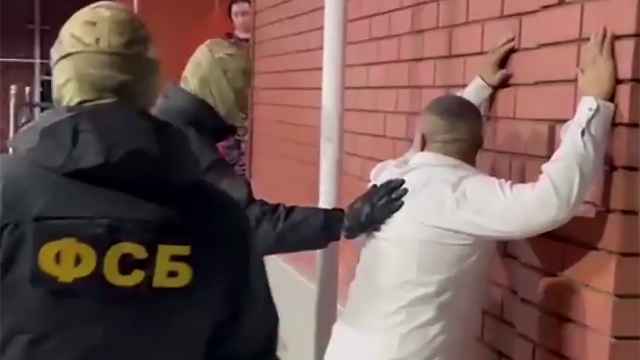Iran and six world powers clinched a deal on Sunday curbing the Iranian nuclear program in exchange for initial sanctions relief, signaling the start of a game-changing rapprochement that could ease the risk of a wider Middle East war.
Aimed at ending a long-festering standoff, the interim pact between Iran and the U.S., France, Germany, Britain, China and Russia won the critical endorsement of Iranian clerical Supreme Leader Ayatollah Ali Khamenei.
Russia's Foreign Minister Sergei Lavrov praised the deal on Sunday for its lifting of sanctions on Iran.
"This is a call to strengthen trust and allow our partners from the U.S. and European Union to relax the pressure of sanctions that they brought in against Iran, introduced unilaterally, without a decision of the Security Council," he said in a statement on the Foreign Ministry's website.
"We have never recognized these sanctions, and it is probably right to get rid of these unilateral sanctions in order to relax this strain on Iran."
Lavrov also said the deal recognized Tehran's right to exploit nuclear technology for peaceful purposes with in the framework of the International Atomic Energy Agency.
U.S. President Barack Obama said the deal struck after marathon, tortuous and politically charged negotiations cut off Tehran's potential path to a nuclear weapon. But Israel, Iran's arch-enemy, denounced the agreement as an "historic mistake."
Halting Iran's most sensitive nuclear work, its higher-grade enrichment of uranium, it was tailored as a package of confidence-building steps towards reducing decades of tension and banish the spectre of war over Iran's nuclear aspirations.
European Union foreign policy chief Catherine Ashton, who has been coordinating diplomatic contacts with Iran on behalf of the major powers, said it created time and space for follow-up talks on a comprehensive solution to the dispute.
"This is only a first step," said Iranian Foreign Minister and chief negotiator Mohammad Javad Zarif. "We need to start moving in the direction of restoring confidence, a direction which we have managed to move against in the past."
Hard-pressed by sanctions, many Iranians were elated by the breakthrough and prospect of economic improvement. The Iranian rial currency, decimated earlier this year due to sanctions, jumped more than 3 percent on news of the deal on Sunday.
Obama said that if Iran did not meet its commitments during the six-month period covered by the interim deal, Washington would turn off the tap of sanctions relief and "ratchet up the pressure."
But Israeli Prime Minister Benjamin Netanyahu condemned the deal as it left the nuclear fuel-producing infrastructure of its archfoe intact. "What was achieved last night in Geneva is not a historic agreement, it was a historic mistake," he said.
"Today the world has become a much more dangerous place because the most dangerous regime in the world took a significant step towards obtaining the world's most dangerous weapon," he said in public remarks to his cabinet.
Nevertheless, the big power foreign ministers appeared relieved and elated after Ashton read out a statement proclaiming the deal in the middle of the night at the United Nations office in Geneva.
Ashton and U.S. Secretary of State John Kerry hugged each other. Kerry and Russian counterpart Sergei Lavrov shook hands. Minutes later, as Iran's delegation posed for photos, Zarif and French Foreign Minister Laurent Fabius embraced. France had taken the hardest line on Iran in recent talks.
The U.S. said the deal would halt advances in Iran's nuclear program, including construction of the Arak heavy-water reactor that deeply worries the West as it could yield plutonium, another atomic bomb ingredient, once operational.
It would neutralize Iran's stockpile of uranium refined to a concentration of 20 percent, which is a close step away from the level needed for weapons, and calls for enhanced, more frequent UN nuclear inspections, a senior U.S. official said.
A U.S. fact sheet said Iran had also committed to suspending enrichment above a fissile purity of 5 percent — the threshold suitable for running nuclear power stations, which is Iran's stated purpose.
Refined uranium also provides the fissile core of an atomic bomb if refined to a high degree.
In return, Iran could obtain access to $1.5 billion in revenue from trade in gold and precious metals and the suspension of some sanctions on its automotive sector, and see its petrochemical exports revive.
But Iranian oil exports would remain for now at their currently significantly reduced levels. "$4.2 billion from these sales will be allowed to be transferred in instalments if, and as, Iran fulfils its commitments," a White House fact sheet said.
Relief from sanctions is to begin in two to three weeks, Iran's Mehr news agency quoted Zarif as saying. The deal does not recognize an Iranian right to enrich uranium, U.S. officials said. Leaders of the Islamic Republic, nevertheless, welcomed the accord and insisted it did amount to a recognition of what they say is Tehran's right to enrich uranium.
A Message from The Moscow Times:
Dear readers,
We are facing unprecedented challenges. Russia's Prosecutor General's Office has designated The Moscow Times as an "undesirable" organization, criminalizing our work and putting our staff at risk of prosecution. This follows our earlier unjust labeling as a "foreign agent."
These actions are direct attempts to silence independent journalism in Russia. The authorities claim our work "discredits the decisions of the Russian leadership." We see things differently: we strive to provide accurate, unbiased reporting on Russia.
We, the journalists of The Moscow Times, refuse to be silenced. But to continue our work, we need your help.
Your support, no matter how small, makes a world of difference. If you can, please support us monthly starting from just $2. It's quick to set up, and every contribution makes a significant impact.
By supporting The Moscow Times, you're defending open, independent journalism in the face of repression. Thank you for standing with us.
Remind me later.





